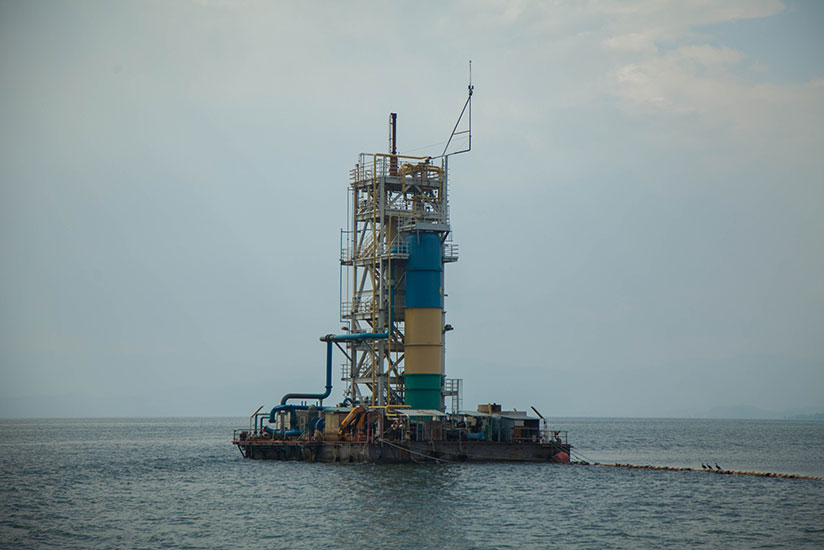Water resources experts from Rwanda and Democratic Republic of Congo and other stakeholders are discussing ways to make Lake Kivu more resourceful to positively impact the peoples of both countries.


Water resources experts from Rwanda and Democratic Republic of Congo and other stakeholders are discussing ways to make Lake Kivu more resourceful to positively impact the peoples of both countries.
During the opening of the international workshop on monitoring and development of Lake Kivu resources in Bugesera District, experts discussed sustainable use of the lake’s resources, with a focus on the extraction of methane gas.
Methane gas in Lake Kivu has an estimated capacity to produce 700 megawatts of electricity, which could go a long way in boosting economic activity in both Rwanda and DR Congo.
Preliminary research has also pointed to considerable probability of oil reserves in the Lake Kivu.
This requires scientists and engineers to work together to improve existing technologies for efficient extraction, management and use of the lake’s resources, according to Augusta Umutoni, Programme Manager of Lake Kivu Monitoring Programme.
"We have been able to implement pilot projects to extract methane gas in the lake. We are now looking to improve technology, to do it more efficiently and make Lake Kivu resources more productive,” she said, adding that extraction of gas in Lake Kivu was like an invention and that it requires constant research.
"We were previously interested in exploitation regardless of geological aspects, regulations of exploitation and other improvements that researchers helped us make. After seeing that it is possible, we are now self-assured that we can do more,” she said
She said researchers will also be looking to improve the use of Kivu resources, citing use of gas in cooking, making fertilisers, among other aspects that researchers are examining.
On the agenda, participants will discuss geodynamics and social impact of Lake Kivu, among other issues.
Popaul Ndomba, the head of the bilateral ad hoc Committee on Lake Kivu, explained that safe exploitation requires adequate studies and cooperation between the two countries.
"There are various phenomena in the lake. If we don’t know much about how the lake functions, we can create problems. For us to make safe exploitation, it requires working together in conducting studies and this meeting will help us improve our knowledge and the information we have on Lake Kivu,” he said.
The effort to convene the meeting was initiated by the governments of Rwanda and the Democratic Republic of Congo in March 2007.
Rwanda started extraction of methane from Lake Kivu to prevent the risk of gas release and to produce energy. Small pilots plants of around 5MW have been operational since 2008 while a bigger 26MW KivuWatt plant was launched in January 2016.
editorial@newtimes.co.rw


